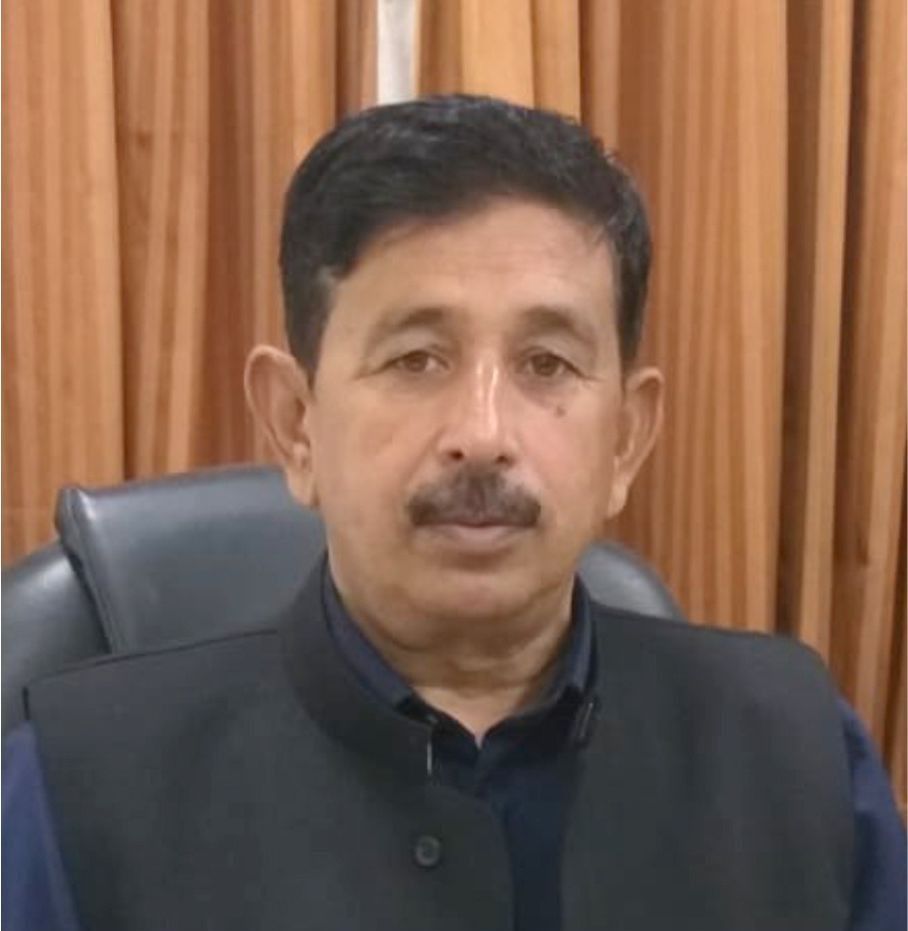By: Aziz-ur-Rehman
If one were to mention the names of those individuals in Pakistan’s intellectual and academic history who transformed universities from mere educational institutions into centers of thought, vision, and human excellence, then the names of Professor Dr. Shahid Siddiqui and Professor Dr. Nasir Mehmood would undoubtedly stand out. These two figures are not just educationists, but shining beacons of culture, ethics, vision, and humanism. Although their leadership styles may differ, their shared dream is one and the same: the promotion of knowledge, the nourishment of thought, and the respect for human dignity. For them, education is not merely about degrees or curricula—it is a moral, intellectual, and cultural responsibility.
When Dr. Shahid Siddiqui assumed leadership of Allama Iqbal Open University in October 2014, the institution ceased to be just a hub for distance learning and evolved into a vibrant intellectual caravan. He launched initiatives such as “Kitab aur Sahib-e-Kitab” (The Book and the Author), “Media Dialogues”, “Mat Samjho Hum Ne Tumhe Bhula Diya” (Don’t Think We Have Forgotten You), “Research Colloquium”, Islamic lectures, and professional development programs—activities that transcended formal ceremonies and transformed into intellectual movements.
Journalists and intellectuals like Hamid Mir, Saleem Safi, Rauf Klasra, Talat Hussain, and Javed Chaudhry became part of these thought-provoking sessions, and thus, the atmosphere of the university became infused with dialogue, inquiry, and a passion for research.
However, Dr. Shahid Siddiqui’s true identity lay in his humble nature, simplicity, and humanism. Even as Vice Chancellor, he found dignity in sitting on the ground and drinking tea with gardeners, security guards, or janitors. Under his leadership, the university witnessed unprecedented growth. Student enrollment exceeded 1.4 million, research journals were launched, modern model study centers were established, and a record number of promotions for faculty and staff made his era unforgettable.
When his tenure ended in November 2018, every eye was tearful. His farewell words still echo in many hearts:
“I am leaving, but my prayers and dreams will remain here. I wish to see the flame of knowledge burn bright—in every heart, every mind.”
Five years later, in November 2023, when Professor Dr. Nasir Mehmood took over the reins of the same institution, it wasn’t just an appointment—it was the beginning of a new chapter in a continuing intellectual legacy. By declaring 2024 as the university’s Golden Jubilee Year, he initiated a new wave of academic events—seminars, conferences, convocations, and educational expos that signaled the revival of knowledge and scholarship.
The fact that convocations were held in cities like Islamabad, Lahore, Peshawar, Karachi, and Quetta demonstrated that Dr. Nasir was committed to delivering educational services right at the students’ doorsteps. He adopted the same path his predecessor was known for: simplicity, sincerity, transparency, and compassion.
He shared his personal WhatsApp number with the entire staff, made it a point to listen to every employee—regardless of rank—and considered all staff members as equal stakeholders in the institution.
In just six months, he conducted three to four meetings of the Departmental Promotion Committee and the Selection Board, promoting employees, officers, and teachers who had been waiting for years. His tenure is being remembered not merely for administrative achievements, but as a model of employee-friendly leadership.
Dr. Nasir Mehmood made the enhancement of student facilities his top priority. He frequently visits regional university offices, meeting students, teachers, and local residents, listening to their concerns, and issuing instructions accordingly—ensuring that education remains rooted in the realities on the ground.
Under his leadership, the institution is once again moving toward a renewed intellectual direction. Indeed, the departure of Dr. Shahid marked the end of an intellectual era, and the arrival of Dr. Nasir is the continuation of that same light.
Both have proven that leadership is not about sitting on a throne—it is about uniting hearts, illuminating minds, and transforming institutions into symbols of cultural heritage. As Dr. Shahid used to say:
“One can temporarily subdue others with weapons, but to rule over minds is only possible through the power of knowledge.”
This statement is not just a quote, but a manifesto of thought that will echo through the ages.
Today, as Allama Iqbal Open University embarks on a new intellectual journey, our hearts naturally pray that Dr. Nasir Mehmood continues to keep this torch alight with the same sincerity, dedication, and vision.
His leadership is not only a testament to administrative competence, but also to ideological and cultural awareness. He not only bridges distances but also connects hearts, awakens minds, and brings education into the domain of human empathy.
If his tenure is extended, it will not merely be a continuation of an appointment—it will be the continuation of a tradition of knowledge, dignity, and visionary leadership that has made this institution an intellectual epicenter.
But if ever he departs, it won’t simply be a change of office—it will be a farewell to a light, a vision, and an extraordinary legacy. That day, it won’t just be ceremonial words and bouquets presented in his honor. Rather, heartfelt prayers, tears in eyes, and words of reverence and gratitude on every lip will be his real tribute—tributes that only great leaders receive.
And if tradition prevails and “from one flame another is lit”, a new leadership will emerge—but it will be etched in every heart that Dr. Nasir Mehmood was not just a Vice Chancellor, but the leader of an intellectual caravan—a leader who lit lamps in darkness and transferred the light of knowledge into every heart.
Truly, some people are not defined by their titles—but by their character and their vision. Dr. Nasir Mehmood is one of those shining names.

